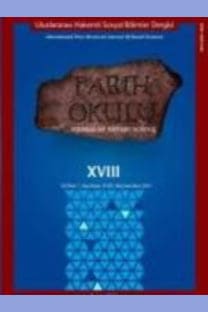OPERA ŞARKICILIĞINDA BİR DÖNÜM NOKTASI: ‘DO Dİ PETTO’
Genel olarak müzikal duyum, özel olarak da şarkıcının söyleme tekniğinin bir ürünü olan vokal duyum, müziğin toplumsal bağlamının en önemli halkalarından biridir. Kültürel bir davranış olması bağlamında, müziğin icra edilme biçimlerinin ve nihayetinde ortaya çıkan duyumun her bir kültür açısından kendine özgü olacağını söylemek mümkündür. Şarkı söyleme sırasında şarkıcının vokal sanata ait çeşitli parametrelerden hangilerini ve nasıl kullandığı hususu şarkıcının ürettiği duyumu biçimlendirir ve söz konusu parametreler ‘toplumsal’ olan üzerinden şekillenir. Şarkıcının uyguladığı teknikler aracılığıyla ürettiği vokal duyum ile bu duyumun kültürel bağlamı arasındaki ilişkiyi opera şarkıcılığının on dokuzuncu yüzyılın ilk yarısı biterken yaşadığı değişimle de örneklendirebiliriz. Bir süre öncesinde başlayıp on dokuzuncu yüzyılda artık iyice hızlanan toplumsal ve siyasal alandaki dönüşümler, opera librettolarında realizme doğru bir değişime neden olur. Realizme doğru bu değişim opera sahnesinde solistin şarkı söyleme sırasında kullandığı register de dâhil pek çok dinamikte farklılaşma ihtiyacını da doğurmuştur. Toplumsal talepler üzerinden şekillenen süreç, nihayetinde opera şarkıcılarının 200 yıl boyunca kullandıkları duyumsal niteliğin ve bu niteliğin üretiminde kullanılan tekniklerin değişimini de beraberinde getirmiştir.
Anahtar Kelimeler:
Ses eğitimi, Opera Şarkıcılığı, Şarkı Söyleme Stili, Geleneksel Şarkıcılık, Şarkı Söyleme Sanatı.
A Turning Point in Opera Singing: ‘Do di Petto’
Musical sounds, but specifically vocal sound, as the product of singers’ singing technique, are one of the most important components of societal linkage to music. If we consider that making music is essentially a cultural behavior, one can argue that the style of music practiced and sound produced will be peculiar to each society. In the field of singing, which of parameters are used and how they are used by the singers will determine the quality of vocal sound produced, and these parameters are shaped by societal factors. We can exemplify the relation between singer’s vocal sound produced through his/her techniques and cultural context of this sound with the changes occurred in opera singing style at the end of the first half of the nineteenth century. The transformations happened in social and political fields that begun some time ago and accelerated thoroughly from now the beginning of nineteenth century has also created changes toward the realism in opera librettos. This change toward realism in conclusion has leaded to need of differentiation in the dynamics applied by singers, including registers. This process configured by social requirements, have bring the changes in sound quality and techniques produce this quality that has been used for two century by opera singers.
Keywords:
Voice Training, Opera Singing, Singing Style, Traditional Singing, Singing Art.,
- ISSN: 1308-5298
- Başlangıç: 2008
- Yayıncı: Ahmet KARA
Sayıdaki Diğer Makaleler
İLKÖĞRETİM ÖĞRENCİLERİNİN VATAN OLGUSUNA İLİŞKİN ALGILARININ BELİRLENMESİ
Recep ÖZKAN, - Mehmet Akif TAŞKIN
Sercan DEMİRGÜNEŞ, Fatih Ocak - Aslıhan KÜÇÜKAVŞAR
MOĞOL DÖNEMİNİN YÖNETİCİLERİNDEN MELİK MECNEDDÎN-İ KALYONÎ VE OĞLU ŞEMSEDDÎN MUHAMMED-İ KALYONÎ
YÖNETİCİLERİN MİZAH TARZLARININ UYGULAMADAKİ DURUMUNUN KURAMSAL VE UYGULAMALI OLARAK AÇIKLANMASI
EMEVİLER DÖNEMİNE AİT İNGİLİZCE KİTAP, TEZ VE MAKALELER (Bibliyografik Bir Deneme)
İSLAM İKTİSADİ GELİŞMESİNİN TARİHİ VE DİNİ DİNAMİKLERİ
Rumbeyoğlu Fahreddin-mehmed NABİ
AMERİKA’DAKİ NEO-MUHAFAZAKAR, LİBERAL TARİHÇİLİK ÇATIŞMASI VE LYNNE CHENEY
HARUT VE MARUT KISSASININ EŞ UYUMU AÇISINDAN DEĞERLENDİRİLMESİ
